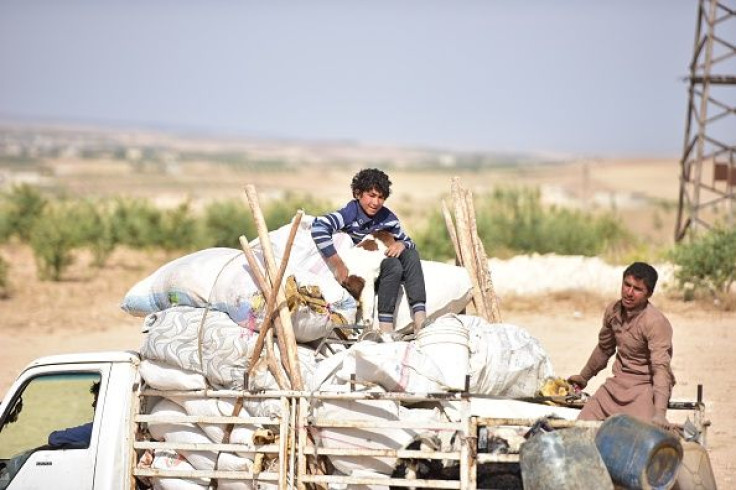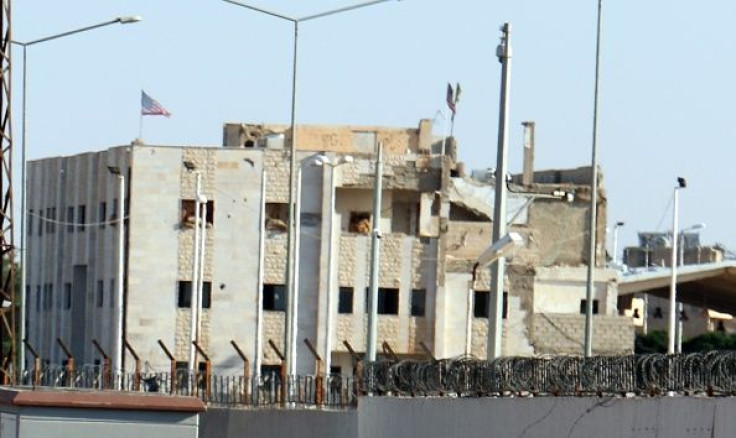ISIS Loses Ground In Syria And Becomes More Deadly

The capture of Raqqa, the Islamic State's Syrian capital, was “a matter of days, not weeks,” according to a senior Kurdish official on a pro-Syrian Democratic Forces Facebook account Friday.
Increased advances into Raqqa by the Kurdish-led Syrian Democratic Forces (SDF) resulted in the group surrounding the city’s northern and eastern divisions. As the SDF closed in on Raqqa, Islamic State (ISIS) forces inside the city prepared to utilize similar defensive tactics they used in Mosul, their capital in Iraq. These included roadside bombs, mines, booby-trapped houses and car bombs. The goal of the organization was to cause as many casualties as possible.
Read: ISIS Kills Hundreds In Mosul, Iraq, According To UN
On Saturday, new progress was made against ISIS militants to enter the city from the south bank of the Euphrates River, as the city is located on the northern side of the river. The SDF, a group backed by the United States, reported they were in control of 90 percent of Mansoura, a town approximately 16 miles from Raqqa. Their forces are “now two kilometers (about 1.2 miles) from the city center,” they said. However, these reports are similar to initial reports from the advance on Mosul in Iraq. Mosul has still not been fully liberated from ISIS.
Mosul has over one million residents, whereas Raqqa only has about 300,000. The smaller size of Raqqa appears to motivate ISIS to maintain its hold on the city. ISIS uses drones and anti-aircraft missiles, but it emphasizes urban warfare to maximize casualties. By executing civilians and preventing them from fleeing, it can strengthen the human wall behind which its followers hide.
Similar to Mosul, resistance to ISIS in Raqqa consolidated efforts of local forces with aerial power from the U.S.-led coalition. One key component separated the struggle in Raqqa from the struggle in Mosul: The Kurds’ role in Raqqa caused tensions between Turkey and America.
The May 16 meeting between U.S. President Donald Trump and Turkish leader Recep Tayyip Erdogan has been defined as “the most unsuccessful Washington visit ever.” Erdogan wanted Trump to change America’s policy toward the Kurds’ People’s Protection Units and declare them as a terrorist organization; extradite preacher Fethullah Gulen, whom Turkey believed was behind a failed coup last July; and release Reza Zarrab, a suspect in a 2014 corruption case. This was reported by leading Turkish columnist Cengiz Candar in May. President Trump denied all three requests.
Read: ISIS Defeated? Military Used 7,000 Weapons In Iraq, Syria Against Terror Group
Erdogan’s cause for concern toward the Kurds was what the Syrian Democratic Front, comprised mostly of Kurds, would do with the U.S.-provided weapons in the event ISIS is defeated. Erdogan believes the possibility exists that those weapons could be used against Turkey or given to other terrorist organizations, but President Trump ignored his concerns and instead increased arms shipments to the SDF.

However, the fight for Raqqa was not over, which made these concerns not immediately pressing. As SDF fighters closed in on the city, ISIS further lost control of Raqqa. 21 people were killed in Monday night airstrikes, according to the Britain-based Syrian Observatory for Human Rights. Although Raqqa was surrounded from the east, north and west, ISIS continued doing everything in its power to maintain control of its de facto capital.
© Copyright IBTimes 2024. All rights reserved.











